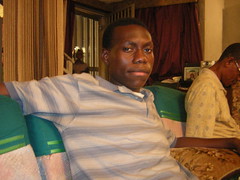Aftermath of the Nations cup and the lessons


Even before the floodlights went out at Cairo's International Stadium on Friday, it was clear that African football has a real dilemma.Even before the floodlights went out at Cairo's International Stadium on Friday, it was clear that African football has a real dilemma.vEven before the floodlights went out at Cairo's International Stadium on Friday, it was clear that African football has a real dilemma.Even before the floodlights went out at Cairo's International Stadium on Friday, it was clear that African football has a real dilemma.
While the standard of African players continues to improve, it appears the same cannot be said for the continent's organisers and administrators.Stadium disasters claimed the lives of almost 200 spectators during a 12 month period, with incidents in Ghana, DR Congo and Zimbabwe.
Here in Egypt the situation was exactly the same.
When Egypt faced Ivory Coast in their final group game, it was claimed that up to eleven thousand extra fans forced their way into the match.
The Cairo International Stadium was refurbished for the Nations CupThe problem for the final was just as bad.
Aisles were blocked, thousands more stood around the top of the stadium leaning over walls, while police sat around soaking up the atmosphere.
At the Military Stadium in Cairo, a television gantry was erected on scaffolding and positioned on a staircase leading from the main stand.
This was pointed out to Fifa's head of security, Walter Gagg, who appeared genuinely shocked.
It was also pointed out to a Caf official, who appeared genuinely surprised that a fuss was being made about it in the first place.
Before the tournament, the Egyptians were keen to shout about how much money had been spent on refurbishing the stadiums.
Sadly, a major international sporting event is not simply about building smart, well-equipped venues. And there lies the problem.
The standards expected by Fifa for all aspects of a major football tournament are not being achieved by Caf , who ultimately must take responsibility.
It's no longer about education.
Time has come to stop patronising African football's administrators.
Sadly, as long as Africa refuses to apply international sporting standards, that's unlikely to happen. I just hope the organisers of Ghana 2008 take heed.


<< Home